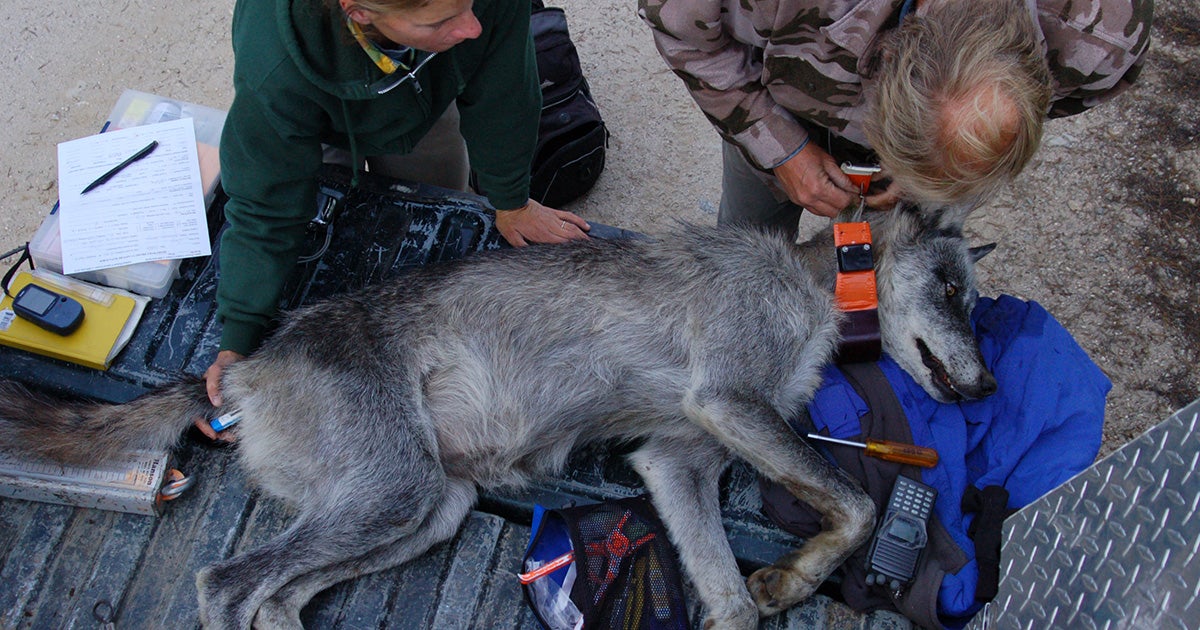Earthjustice goes to court for our planet.
We’re here because the earth needs a good lawyer.
We’re Challenging the Trump Administration’s Decision to Strip Federal Protection From Wolves Across the Country
This page was published 5 years ago. Find the latest on Earthjustice’s work.
Today six environmental groups filed a lawsuit against the Trump administration’s removal of Endangered Species Act protections for gray wolves across most of the lower 48 states.
Our lawsuit challenges the removal of protections from wolves nationwide because the U.S. Fish and Wildlife Service only evaluated the health of wolf populations in the Midwest. This is a failure to protect and restore wolves in California, Washington, Oregon, Colorado, Maine, and other states where wolves are just returning to the wild.
With wolf management in the hands of individual states, places in the Midwest could see renewed wolf hunting and trapping seasons.
The U.S. Fish and Wildlife Service made its decision against the advice of scientists who say wolves are still functionally extinct in the vast majority of the places they once inhabited and need continued federal protections in order to survive and recover.
Have wolves recovered?
- Interior Secretary David Bernhardt and U.S. Fish and Wildlife Service Administrator Aurelia Skipwith made the announcement of the final rule in Minnesota, a state where wolves have a fairly robust population.
- But instead of retaining federal protections to allow other wolf populations to thrive, the new delisting rule relies on the Midwest populations to deem all wolves recovered, even while admitting that wolves are missing from the majority of their former range.
- In Washington, Oregon, and California, wolf families are just beginning to recover.
- In states like Colorado, Utah, and Maine, biologists have identified large swaths of suitable wolf habitat with no wolves at all.
- The Endangered Species Act requires imperiled populations to be recovered before removing federal protections.
- In the Delisting Rule, the administration used the success of wolves in the Midwest to deprive wolves nationwide of protection.
What happens when wolves lose federal protections?
- Wolf management turns to individual states, which may open hunting seasons and issue licenses to shoot or trap wolves.
- Without federal Endangered Species Act protections, states with hostile anti‐wolf policies will be charged with ensuring the survival of gray wolf populations.
- Based on the wolf management plans previously released by Minnesota, Wisconsin, and Michigan, more than half of the wolves in the Midwest — over 2,000 wolves — could be legally killed.
- Such destruction would mirror what has happened in the northern Rockies. Since the 2011 removal of federal wolf protections in Idaho, Wyoming, and Montana, people have killed an estimated 3,500 wolves.
Why are wolves important?
- Wolves are a “keystone” species meaning that they play a crucial role in maintaining healthy ecosystems.
- The nationwide extermination of wolves at the beginning of last century triggered a cascade of effects that dramatically altered ecosystems.
- In places like the northern Rockies, with no wolves on the land for decades, the elk population exploded, leading to overgrazing of willows and aspen. This in turn harmed animals like birds and beavers, further disrupting aquatic life.
- Since the wolves’ return to the region in the mid-1990s, scientists in Yellowstone National Park have documented the remarkable restoration of natural systems there.
- The return of wolves led to changes in behavior of the elk and harkened the return of animals and plants up and down the food chain.
What is Earthjustice doing?
- Earthjustice has fought for wolf recovery for over three decades, and we’re not backing down now.
- The Trump administration’s Delisting Rule violates the Endangered Species Act. Working with our partners, we have challenged it in federal court.
Dr. Jane Goodall speaks in response to the delisting announcement.
